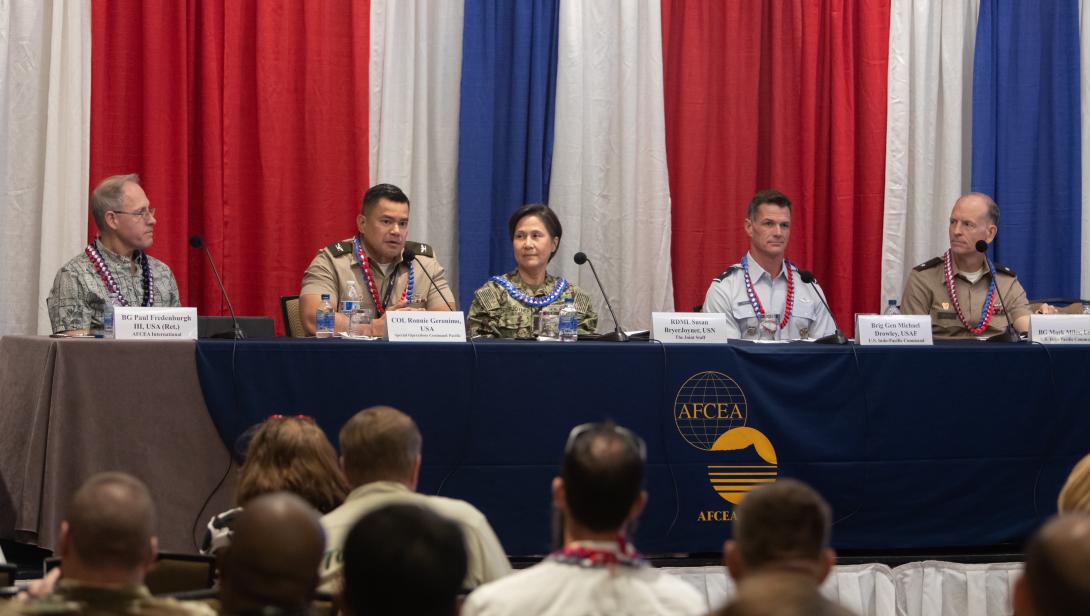Special Ops Applies Ukraine Lessons to Indo-Pacific
U.S. Special Operations Command Pacific is using lessons learned during the war between Russia and Ukraine to determine which technologies to provide to partner forces in the region, according to Army Col. Ronnie Geronimo, director of Communications (SOJ6), Special Operations Command Pacific.
Col. Geronimo told the audience at the AFCEA TechNet Indo-Pacific conference in Honolulu that he was tasked with two things when he was assigned to the Indo-Pacific region four months ago. The first was to “find out what Ukraine is doing and communicate externally to the partner forces what they're communicating with.” The second was to “bring that to the Pacific and figure out how to get that capability to the partner force of choice and make sure that we're resilient, reliable and survivable.”
“So, everything that we've done for the past four months now to develop new capabilities, has been around that. We've taken a lot of lessons learned from our [Special Operations Command Europe] counterparts to get those key things they've taken out of the Ukraine conflict, and we started applying those lessons learned here,” he said.
COL Ronnie E. Geronimo, USA
— Kimberly Underwood (@Kunderwood_SGNL) November 3, 2022
Director of Communications (SOJ6) @USSOCOM @INDOPACOM: We can learn from Ukraine the use of non-standard platforms for info exchange, to push info real-time. #AFCEATechNet @afceahawaii @AFCEA
One of the lessons learned is the importance of “nonstandard” platforms for sharing information. “The Ukrainian conflict has demonstrated how crucial it is to have nonstandard platforms towards information exchange in today's operational environment. So not only must we stay the course and develop a mission partner environment and secret releasable capabilities to ensure that we can have our type of mission command systems interoperate across the forest, but we also must recognize that enriched data observed from commercially or publicly available information shared by the U.S. and partner forces of choice is just as effective in getting our point across and assisting that partner force and time of crisis,” Col. Geronimo added.
Much of the command’s efforts are toward delivering technologies that can push information to partners in real time, even though the Indo-Pacific partners and allies are not likely to adopt unified standards in the near future, he indicated. “I think there's a good push towards a unified standard out there. But if you factor in our partner forces, who have capabilities—and more importantly the ones that don't have capabilities—it becomes very challenging to do that.”
The colonel also emphasized the need for strong relationships. “In situations where authorities limit our abilities towards information sharing, another lesson from Ukraine is that relationships matter. Your partners and allies matter, right? It's not really a technology but more of a process. And that's what we've seen really become very, very useful in the current conflict.”




Comments